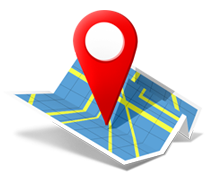Percentage of Latinos living with HIV who are aware/unaware of their HIV status*
(*) By the end of 2015
Take the HIV test
The only way to know for sure whether you have HIV is to get tested.
Should I get tested for HIV?
CDC recommends that everyone between the ages of 13 and 64 get tested for HIV at least once as part of routine health care. About 1 in 8 people in the United States who have HIV don’t know they have it.
If you’ve ever had sex with a man or a woman without a condom, or ever injected drugs (even if only once), the only way to know for sure if you are infected or not is to take the HIV test.
How can testing help me?
Knowing your HIV status gives you powerful information to help you take steps to keep you and your partner healthy. If you test positive, you can take medicine to treat HIV to stay healthy and eliminate the chance of transmitting HIV to your sex partner. If you test negative, you have more prevention tools available today to prevent HIV than ever before.
Where can I get tested?
You can ask your health care provider for an HIV test. Many medical clinics, substance abuse programs, community health centers, and hospitals offer them too. You can also find a testing site near you by:
• calling 1-800-CDC-INFO (232-4636),
• visiting gettested.cdc.gov, or
• texting your ZIP code to KNOW IT (566948).
What if my result is negative?
You could still have HIV. Ask your doctor about the “window period,” a period of time after a person is infected during which they won’t test positive. If it is confirmed you are negative, take actions to prevent HIV. For persons who are sexually active, correct and consistent use of condoms and/or PrEP can eliminate the risk of transmission.
What if my result is positive?
You might be given a follow-up test to confirm the result. Finding out you have HIV can be scary, but you can still live a healthy life if you take action. If you have HIV, start medical care right away, even if you don’t feel sick. HIV treatment can keep you healthy for many years and reduce your chance of transmitting the virus to others.
Who will pay for my HIV test?
HIV screening is covered by health insurance without a co-pay, as required by the Affordable Care Act. If you do not have medical insurance, some testing sites may offer free tests. See Where can I get tested? for more information.
Find free, fast, and confidential testing near you.

PSAs: Latinos taking the HIV test
Inicia la Conversación. Detén el VIH.
Prevention campaign by the CDC
Learn more about HIV/AIDS and the HIV test
- CDC – Find Self-Testing Services in your State (cdc.gov/hiv/basics/hiv-testing/hiv-self-tests.html)
- CDC – Basic Information about HIV/AIDS (cdc.gov/hiv/basics/index.html)
- Avert.com – About HIV and AIDS (avert.org/about-hiv-aids)
- helpstopthevirus.com – 4 Reason Why You Should Get Tested (helpstopthevirus.com/hiv-testing)
- Avert.com – HIV Testing (avert.org/hiv-testing)
- CDC – HIV Risk Reduction Tool (cdc.gov/hivrisk/)
- helpstopthevirus.com – 4 Steps We Can Take to Prevent HIV (helpstopthevirus.com/hiv-prevention)
- CDC – Learning about PEP (post-exposure prophylaxis) (cdc.gov/hiv/basics/pep.html)
- CDC – Prevention Tools (cdc.gov/hiv/basics/prevention.html)

